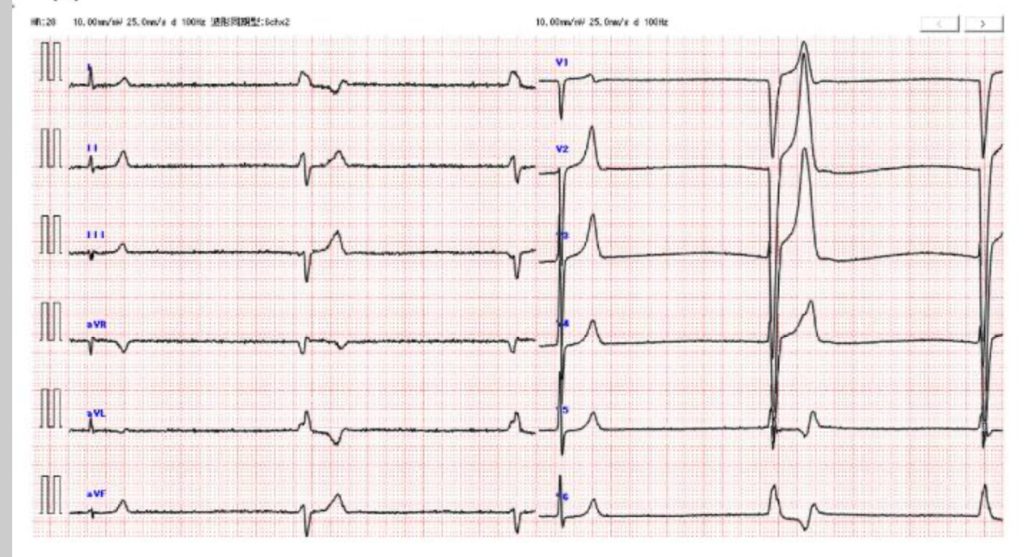
You associate sweet potatoes with many things: Thanksgiving and sweet potato fries! However, I recently had the chance to learn that sweet potatoes can be cold-blooded killers!
Let me set the scene for you. It’s a day or two after Thanksgiving, and you are housing another sweet potato pie leftover from Thanksgiving! You fall asleep in your chair with sweet potato pie crumbs all over!
Suddenly, your son hears you scream and comes running. He finds you on the floor unconscious and calls 911.
Upon the paramedic’s arrival, the patient was lying on the floor c/o dizzyness The paramedics put the patient on the monitor and saw this-
What rhythm is this? Answer at the end

The patient had their last dialysis two days ago before Thanksgiving.
Here are the lab results after arriving at the hospital.
Blood tests revealed BUN 30 mg/dL, creatinine 7.93 mg/dL, eGFR 5.8 mL/min/1.73 m2, and potassium 8.3 mEq/L. Electrocardiograms revealed sinus arrest with a ventricular escape rhythm of 28 beats per minute, tall and peaked T-wave
What happened?
The patient is predisposed to hyperkalemia due to being on dialysis, and it has been two days since the last treatment, which is usually three times a week. But the almost killer here was the sweet potatoes! Sweet potatoes are very high in potassium- One sweet potato contains nearly 700 mg of potassium😳😳😳😳😳, which can easily throw this patient into a deadly hyperkalemia! That can be one lethal 🥔 . Another reason to inquire about a patient’s oral intake!
Potassium is an essential nutrient used to maintain fluid and electrolyte balance in the body. A deficiency in potassium causes fatigue, irritability, and hypertension (increased blood pressure). It is possible to consume too much potassium via potassium salts, which can lead to nausea, vomiting, and even cardiac arrest. Those with chronic kidney disease (CKD) need to lower their potassium. Most people with CKD should consume at most 200mg of potassium per serving or 2000mg per day.
Answer- Electrocardiograms revealed sinus arrest with a ventricular escape rhythm of 28 beats per minute, tall and peaked T waves
References
Yanagihara, C., Kumagi, T., Tasaka, T., Watanabe, Y., Kono, T., Ohshima, K., & Ogimoto, A. (2022, June 1). Potentially life-threatening arrhythmia triggered by an excessive consumption of dried sweet potato “hoshi-imo.” Internal medicine (Tokyo, Japan). https://www.ncbi.nlm.nih.gov/pmc/articles/PMC9259324/

